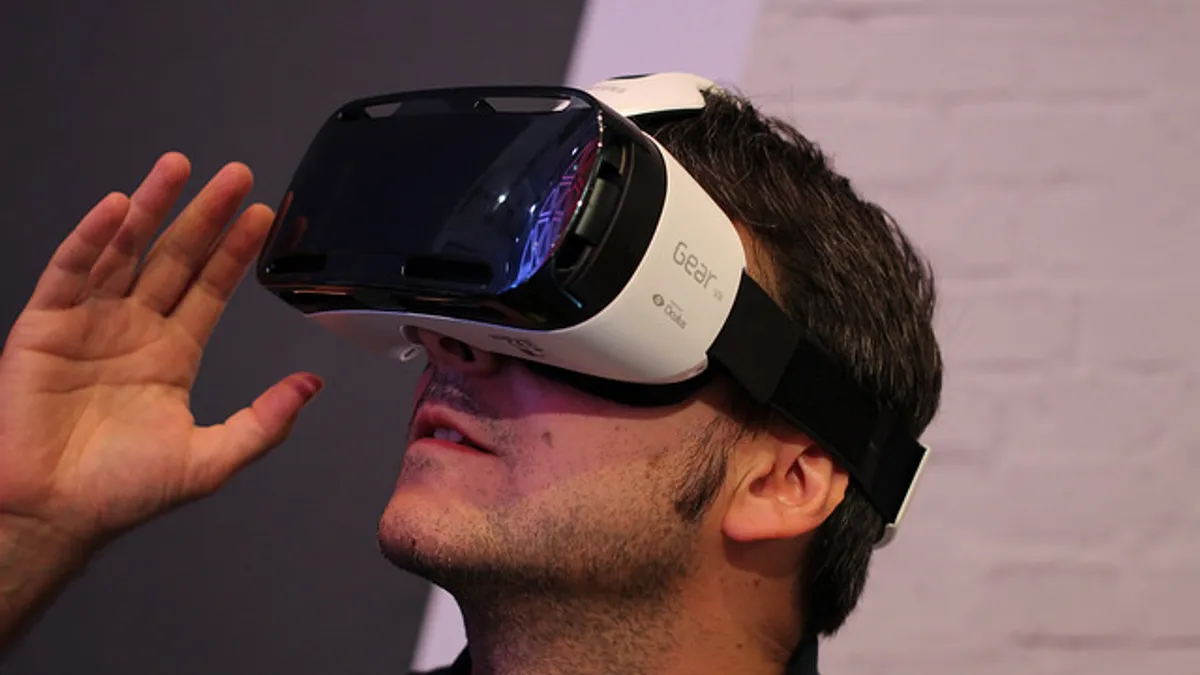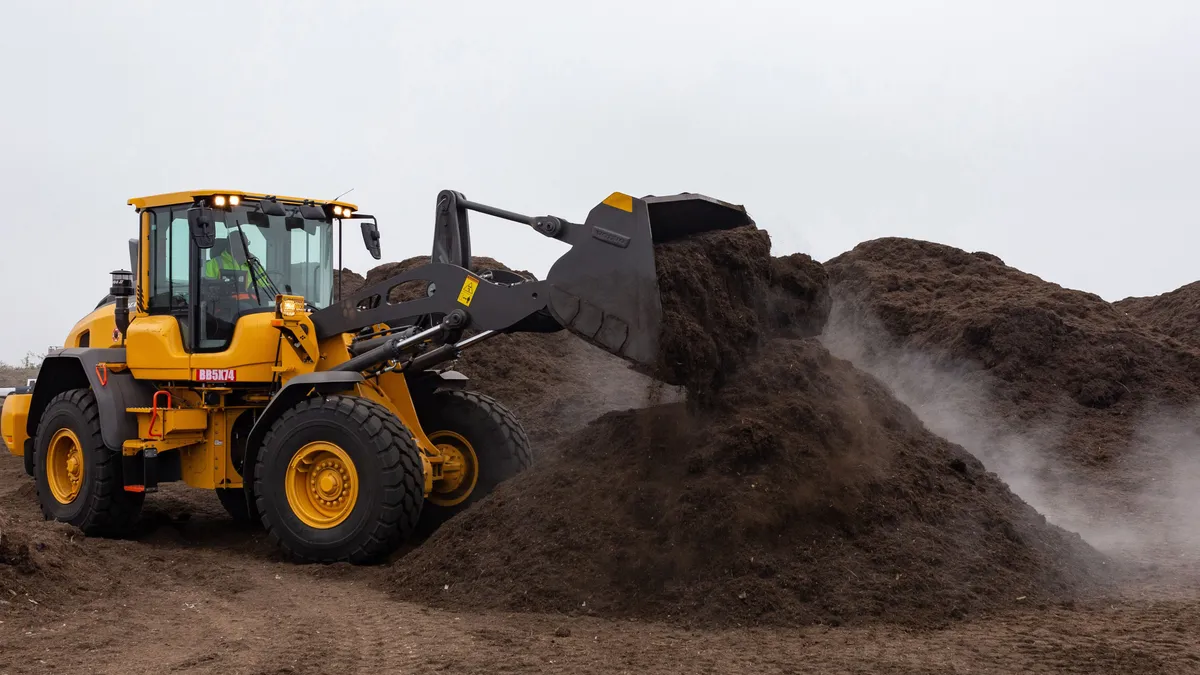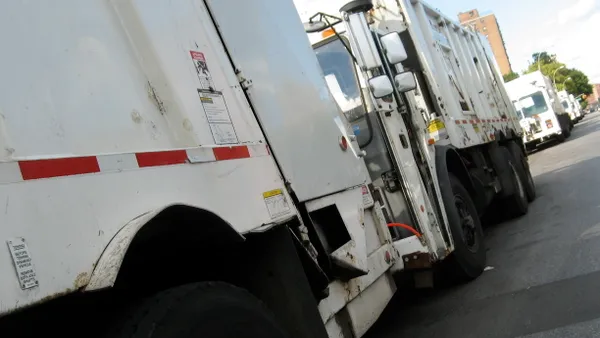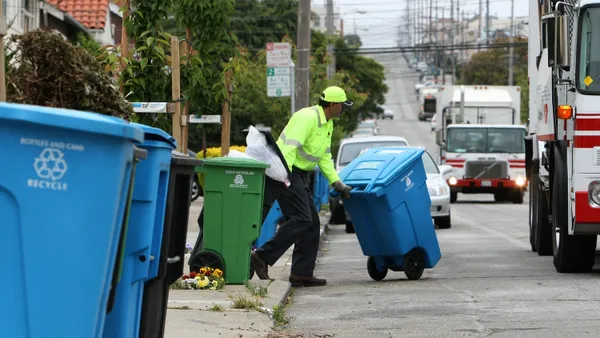Dive Brief:
- During Tuesday's WasteExpo session titled "The Digitalization of Waste & Recycling," Waste Management Vice President of Information Technology Mark Madsen highlighted how the company is considering virtual reality (VR) as a resource to help increase operational efficiency.
-
"Virtual reality is something that we've been looking at ... How do we integrate virtual reality with tasks that we're performing?" asked Madsen. He noted that significant time is lost when a technician needs to walk away from doing repairs on a truck in order to look up information, and suggested VR could give technicians a more accessible, informational alternative to using a computer.
- Also at WasteExpo, CP Group unveiled a "Virtual MRF" that takes customers inside a computer-generated recycling facility via a VR headset, offering a simulated look at a facility with CP Group equipment. Director of Sales Ashley Davis told Waste Today Magazine that CP Group is the first to bring VR technology to the recycling equipment manufacturing industry.
Dive Insight:
VR may be a strange concept to some waste and recycling veterans, but it has grown over the past decade toward becoming a multi-billion dollar industry due to its potential to introduce users to environments beyond their immediate capabilities. Some challenges, such as costs and practical uses, are still being figured out by those who have adopted VR into marketing tactics. Marketing Dive reported that experimenting with the technology early is a smart move due to the likelihood that it will become pricier "as it becomes more viable and valuable on a large scale."
While CP Group's introduction of VR was unprecedented for a recycling equipment manufacturer, it was not the first company to tout VR in the industry. Mack Trucks introduced VR experiences last summer — claiming to be the first Class 8 OEM to ever do so — and demonstrated the technology at WasteExpo 2016. Excitement and positive feedback could inspire other exhibitors to invest in VR at future shows, however it's too early to tell if the trend will stick.
Waste Management may also be one of the first companies of its kind to openly theorize the capabilities of VR for operational purposes, yet the implications of using the technology in the way that Madsen described may be more niche than it's worth. While the uses are intriguing, it's likely more practical for companies like Waste Management to explore alternative methods to these operational inefficiencies and leave VR to the marketers.













